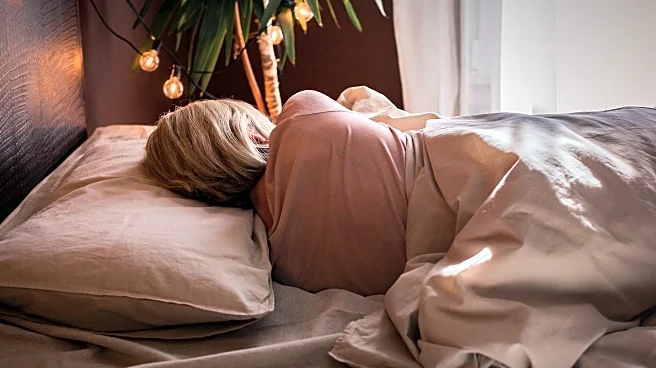What's Happening?
A neurologist specializing in sleep medicine has explored the longstanding belief that the full moon affects sleep and mental health. While folklore suggests that the full moon can cause sleeplessness and erratic behavior, scientific research indicates
that its impact on sleep is modest. Studies show that people tend to sleep less and have reduced deep sleep during the full moon due to increased evening light, which can delay the body's internal clock. However, the connection between lunar phases and mental health issues like mania or psychosis remains weak. The neurologist emphasizes that while sleep loss can exacerbate mental health conditions, the full moon's role is minimal compared to other factors like artificial light exposure.
Why It's Important?
Understanding the true impact of the full moon on sleep and mental health is essential for debunking myths and focusing on more significant factors affecting well-being. The findings highlight the importance of managing light exposure to maintain healthy sleep patterns, which is crucial for mental health. This knowledge can guide public health recommendations and personal habits, especially for individuals with conditions sensitive to sleep disruption, such as bipolar disorder or schizophrenia. By shifting focus from lunar myths to practical sleep hygiene, individuals can better manage their mental health.
Beyond the Headlines
The persistence of lunar myths despite scientific evidence can be attributed to psychological phenomena like illusory correlation, where people remember unusual events coinciding with a full moon but overlook uneventful nights. This highlights the need for public education on sleep science and the influence of artificial light on circadian rhythms. The discussion also touches on broader implications for societal practices, such as the debate over daylight saving time and its impact on sleep and health.
















